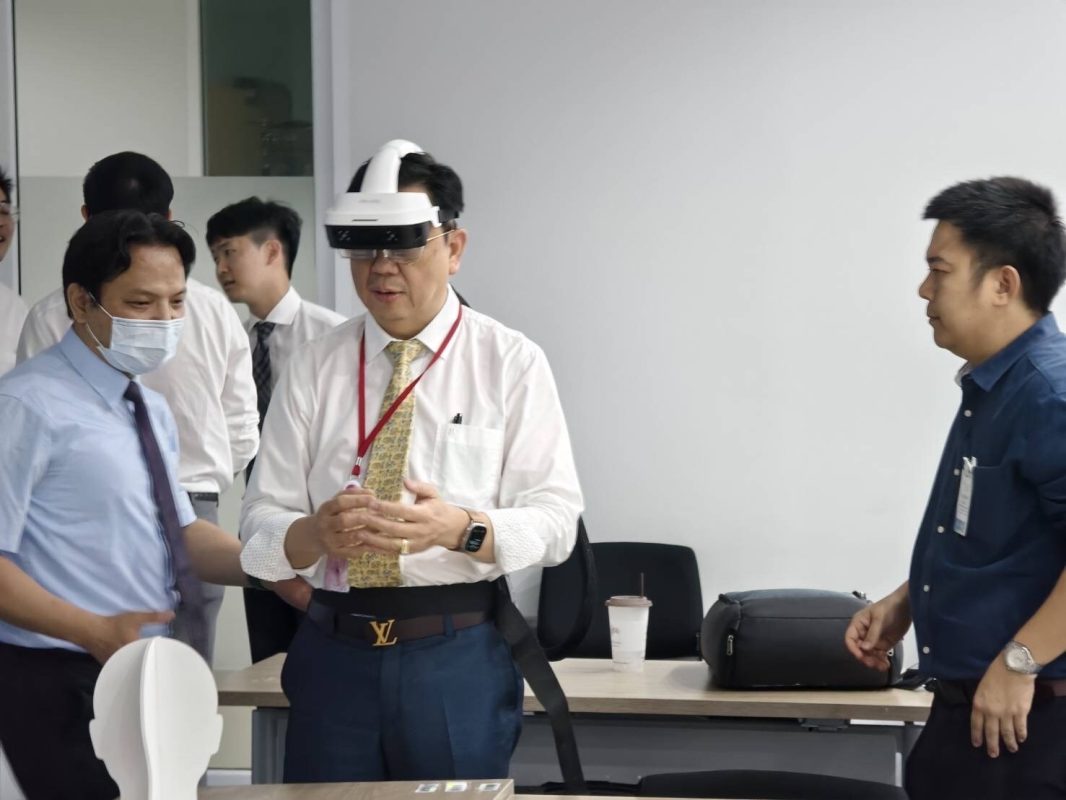Leading augmented reality (AR) medical technology company SURGLASSES today announced that, in collaboration with exclusive distributor Goodlifeintertrade.co. Ltd., it has successfully registered and clinically implemented its AR-based Caduceus S surgical navigation system in Thailand. This groundbreaking system is designed to assist various minimally invasive surgeries, significantly enhancing surgical precision and patient outcomes.
The first AR-guided surgery using only the C-arm in Thailand was successfully performed at Thailand Veterans General Hospital by Dr. Chaiyos Chaichankul. The 78-year-old patient had preoperative symptoms of leg numbness, radiating pain, and difficulty walking. After the surgery, the patient’s nerve numbness in the legs disappeared, and the pain was significantly reduced. The day after the surgery, the patient could sit up and walk, and was discharged four days later, resuming work in two weeks. Dr. Chaiyos Chaichankul remarked, “The AR technology of the Caduceus S surgical navigation system allows us to precisely locate and treat the affected area, greatly increasing the success rate of surgeries and accelerating patient recovery.”
Additionally, SURGLASSES completed the first AR-guided surgery combined with O-arm technology at Chulalongkorn Hospital, led by renowned Associate Professor Prof. Wicharn Yingsakmongkol, M.D., and performed by Dr. Vit. The patient, a 48-year-old woman, had a preoperative back pain level of 10 out of 10. Post-surgery, her pain immediately reduced to 4, and two weeks later, it was completely gone. Dr. Vit stated, “Using the Caduceus S system in surgery not only enhances our precision but also shortens patient recovery time. We look forward to utilizing this innovative technology in more surgeries in the future.”
The Caduceus S AR surgical navigation system is an advanced tool specifically designed for augmented reality spine surgery. Through its 3D visualization capabilities, surgeons can clearly view the internal anatomy of patients during procedures, including bones, tissues, and organs, thereby improving surgical accuracy and outcomes. AR minimally invasive spine surgery and spine navigation technology are becoming integral parts of modern healthcare, with SURGLASSES leading the charge in this field.
SURGLASSES CEO Min-Liang Wang commented, “We are thrilled with the significant clinical outcomes achieved by the Caduceus S surgical navigation system in Thailand. We are grateful for the collaboration with Dr. Chaiyos Chaichankul as well as the efforts of our research teams in Taiwan and the US. These successes demonstrate the potential of our technology to enhance the quality of healthcare.”
SURGLASSES is dedicated to addressing the limitations of current medical imaging technology through the use of AR. The Caduceus S system enables clinicians to visualize patients’ internal anatomical structures in 3D during surgery, including bones, tissues, and organs, thereby improving surgical precision and outcomes. The AR navigation technology also allows for future collaboration with remote clinicians through shared visualization and real-time communication, providing guidance during collaborative patient care.
SURGLASSES is an innovative medical technology company with subsidiaries in the US and Taiwan, committed to advancing human health through its AR digital augmented reality ecosystem. The Caduceus S augmented reality visualization platform aims to unlock the full potential of 3D data, transforming image-guided medical procedures through intuitive 3D X-ray visualization. The system has received FDA 510(k) clearance, as well as approvals from Taiwan TFDA and Thailand FDA, and is actively expanding its global market presence.
Through these advanced technologies, SURGLASSES is shaping the future of augmented reality surgical navigation systems, providing medical professionals worldwide with more efficient and precise surgical tools. The successful application of the Caduceus S marks a new era in medical technology, promising better surgical experiences and recovery outcomes for patients around the globe.
